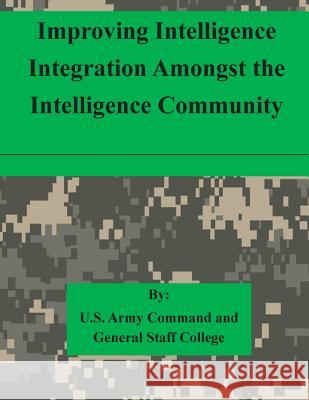Improving Intelligence Integration Amongst the Intelligence Community » książka
Improving Intelligence Integration Amongst the Intelligence Community
ISBN-13: 9781511615419 / Angielski / Miękka / 2015 / 58 str.
Gathering and sharing intelligence is crucial to ensuring our national security. The intelligence community (IC) is commonly blamed when there is a failure to foresee actions against U.S. interests at home and abroad. While intelligence is usually compartmentalized, there are occasions where the benefits of sharing intelligence far outweigh the risks. The author believes intelligence sharing amongst members of the community has increased since the Intelligence Reform and Terrorism Prevention Act of 2004 (IRTPA), however the overall effectiveness of that sharing leaves much room for improvement. Members of the IC habitually keep information from each other in the name of secrecy and because of differing missions and personnel security procedures. This thesis seeks to identify the ways in which the sharing of information between the members of the IC has improved since the IRTPA of 2004. The author will describe the composition of the IC and how it was aligned prior to the reform as well as today. The author reviews recommendations that were made prior to the reform and identifies why those recommendations were not implemented. The author also summarizes the details of the reform and the changes made by IRTPA.
Zawartość książki może nie spełniać oczekiwań – reklamacje nie obejmują treści, która mogła nie być redakcyjnie ani merytorycznie opracowana.











